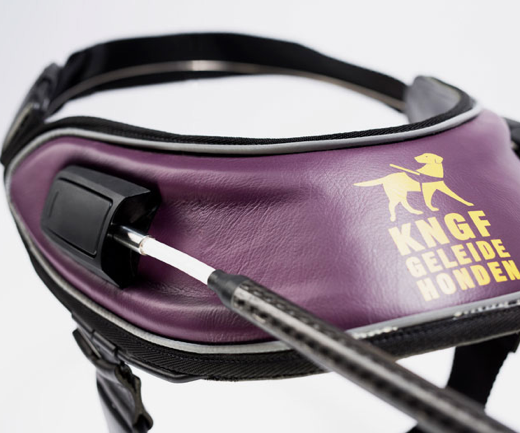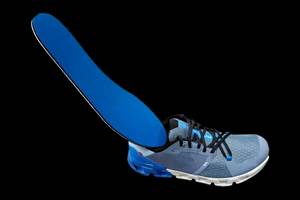Lightweight Reading
CW’s occasional round up of fun composite products and offbeat news surrounding the composites industry.
The world’s first recycled aerospace grade carbon fiber pickle ball net
Pickleball Central (Kent, WA, US) and the Composite Recycling Technology Center (CRTC, Port Angeles, WA, US) on June 21 announced availability of a new portable pickleball net system known as the SwiftNet. The new net system uses a patent pending design to transform how quickly and easily a pickleball court can be set up. The portable nets are made from recycled aerospace grade carbon fiber, making them about half the weight of other portable net systems available. With a carbon fiber boom and pole design, the SwiftNet can be setup by one person, in just a few minutes.
David Walter, CEO of the CRTC, says, “The CRTC is honored to have worked closely with Pickleball Central on the development and launch of this excellent product into the market. We believe customers will appreciate how quickly the lightweight system sets up and how it responds like a tournament net. It is an excellent offering that is helping to keep scrap carbon fiber out of landfills, creating jobs, and giving our customers far more places to play this rapidly growing sport.”
The SwiftNet can be ordered online at www.pickleballcentral.com.
A lightweight carbon fiber guide dog harness handle

Refitech (Waalwijk, The Netherlands) has been awarded a contract for series production of a lightweight carbon fiber handle for a new guide dog harness. The harness was developed by NPK Design (Leiden, The Netherlands) by request of the Royal Dutch Guide Dog Foundation (KNGF Guide Dogs). The new handle weighs less than 50% of the previous metal version, improving comfort for both the dog and the owner. The design incorporates features inspired by kite surfing equipment and motor sports technology, while its reflective trim enhances the dog’s visibility in traffic.
The need for speed… and on-screen accuracy

On May 31 Tom Cruise teased an image for Top Gun 2… and then the aviation community freaked right on out. In case you missed it the shot shows Maverick standing in front of an F-18 Super Hornet, and not the Navy F-35C, carrier variant of the F-35. There has been plenty of heated debate about these two aircraft which boils down to the F-35C being the more advanced fighter featuring stealth technology and the F-18 being the workhorse fighter that is currently in service.
The debate goes kind of like this:
Which plane is the future of the Navy? With its carbon-fiber composite skin and stealth technology, the F-35C is the more advanced fighter and the most stealthy.
Oh yeah, but which craft is most widely used today? The F-35C actually won’t be deployed until 2021 and the F-18 Super Hornet is currently in service.
Which is the fastest? They’re about the same: the Super Hornet’s top speed is 1,190 mph; the F-35’s speed is said to be around 1,200 mph.
And, which fighter is the current administration more behind? Citing the high costs of the F-35, President Trump has done some tweeting that indicates he prefers the Super Hornet, but the Navy seems to have need for both fighters as they have different tactical advantages.
So, which would make Top Gun 2 the most accurate movie? The Super Hornet is likely to be the most widely used fighter for the near future, which is probably why it was chosen.
At CW, of course, we’d love to see the carbon-fiber skinned F-35 on screen. On the other hand, the single seat F-35 is capable of taking out its adversary from well beyond visable range, so all of the dog fights and cockpit banter we think of when we think of Top Gun would definitely need to be portrayed in a different way. But then again, the nature of warfare is different today, so shouldn’t a school for up-and-coming fighter pilots be looking to the technology and tactics of the future?
At the end of the day, there’s a place and purpose for both fighters and the two will likely compliment each other in combat once the F-35C is deployed. And who knows, maybe the F-35 could still make a cameo in the film.
Related Content
Glass fiber-reinforced Akulon RePurposed recyclate enables Ahrend sustainable office chair
Envalior 30% glass fiber-reinforced Akulon RePurposed material helps Ahrend achieve lighter task chair with closed-loop value chain and reduced emissions.
Read MoreCarbon Mobile, SABIC to develop, deploy advanced carbon fiber in connected devices
Collaboration aims to deliver the next generation of thinner, lighter, stronger and more sustainable composite materials used in consumer electronics and automotive industries.
Read MoreRunning shoe insoles get a lift with thermoplastic fiberglass tapes
FlexSpring insoles take advantage of unidirectional, continuous fiberglass and thermoplastics to enable next-level performance for the everyday runner.
Read MoreSyensqo provides PARA resin for Artiphon musical instrument
Artiphon has chosen Syensqo’s Ixef PARA fiber-filled resin in the production of Chorda, its custom handheld electronic musical instrument.
Read MoreRead Next
Plant tour: Daher Shap’in TechCenter and composites production plant, Saint-Aignan-de-Grandlieu, France
Co-located R&D and production advance OOA thermosets, thermoplastics, welding, recycling and digital technologies for faster processing and certification of lighter, more sustainable composites.
Read MoreDeveloping bonded composite repair for ships, offshore units
Bureau Veritas and industry partners issue guidelines and pave the way for certification via StrengthBond Offshore project.
Read MoreVIDEO: High-volume processing for fiberglass components
Cannon Ergos, a company specializing in high-ton presses and equipment for composites fabrication and plastics processing, displayed automotive and industrial components at CAMX 2024.
Read More









.jpg;maxWidth=300;quality=90)












